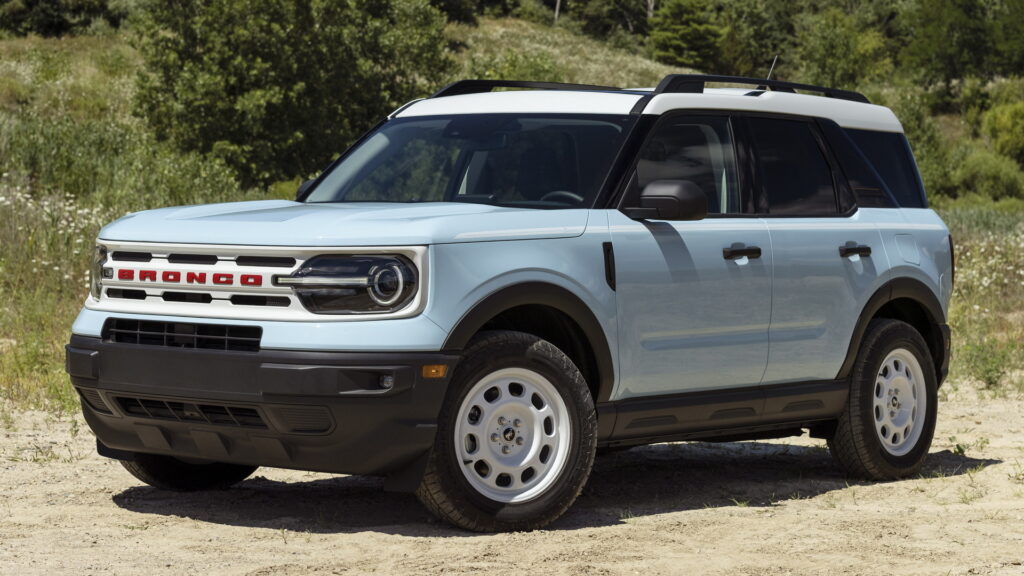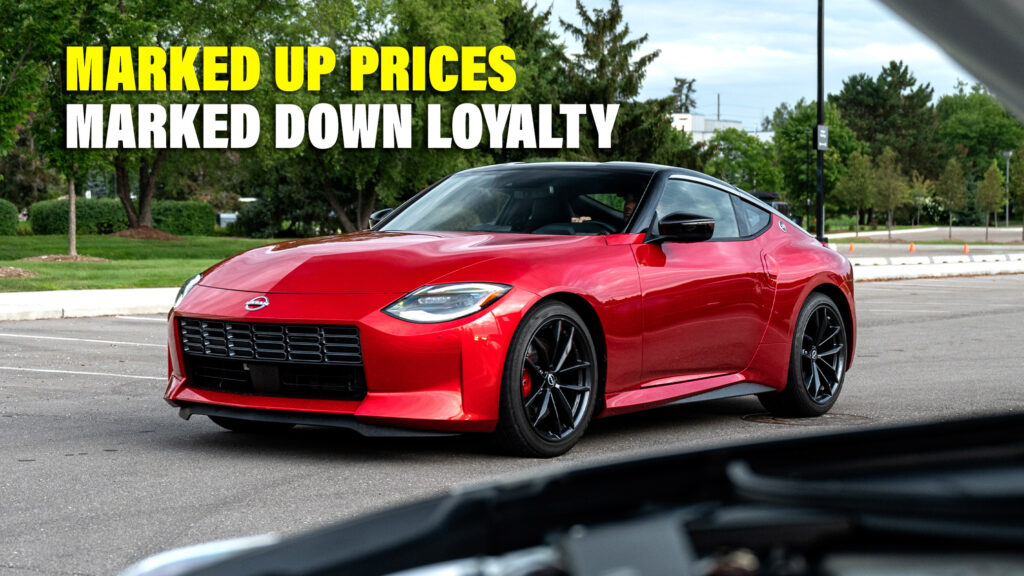Although the pandemic was a difficult time for automakers, it was an even more difficult time for buyers, who were paying through the nose for new vehicles. A new study from Gfk research indicates that the ill-will towards dealers who overcharge could backfire not just on them, but on the brand, too.
In a survey of customers who paid more than a manufacturer’s retail price for a new vehicle, 31 percent said they would advise other shoppers to avoid going to the dealer they bought from. Meanwhile, 27 percent said they would never buy from that brand again.
Although it is perhaps surprising that a majority would continue to shop from a brand whose dealers overcharged them, the impact is still noteworthy for automakers. According to Gfk, customers who paid the sticker price for a new vehicle were significantly less likely to avoid the brand or dealership in the future.
Read: A Loyal Dodge Customer’s Story Of Dealer Greed Over The Demon 170

For dealers, too, there are downstream implications. The Gfk study revealed that in addition to the sales department being avoided, 29 percent of buyers who paid over MSRP said they would avoid the dealership‘s service department in the future, too.
“I could see how a customer would feel that way… ‘If they’re overcharging me because [of] supply and demand, they would do the same in service’,” Rob Shabe, the fixed operations director of Murphy Ford in Chester, Pennsylvania, told Autonews.
Not all dealers are convinced that these increases in negative sentiment are that impactful, though, especially in the context of the pandemic. According to Doug Wells, the general manager of Mercedes-Benz of Edison, in New Jersey, a large proportion of those customers were likely never to shop at a given dealership again, anyway.
Although Wells said his dealership doesn’t charge over MSRP, he reasoned that many customers have been searching the country for new vehicles. Regardless of how much they paid over sticker, he claimed, they were unlikely to return that dealership for services again. Meanwhile, another dealer believed that although customers feel upset after the paying over MSRP, that feeling is unlikely to last until it comes time to actually buy a new vehicle.
Still, as alternatives to dealerships present themselves in the form of the direct-to-consumer approaches championed by the likes of Tesla, it may be short-sighted not to consider the long-term impacts of upsetting clients.





